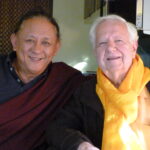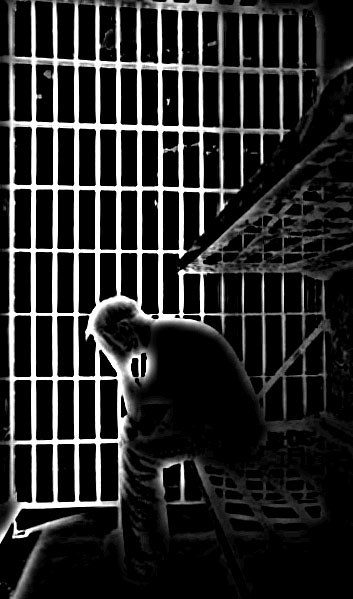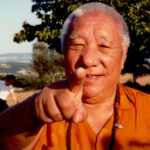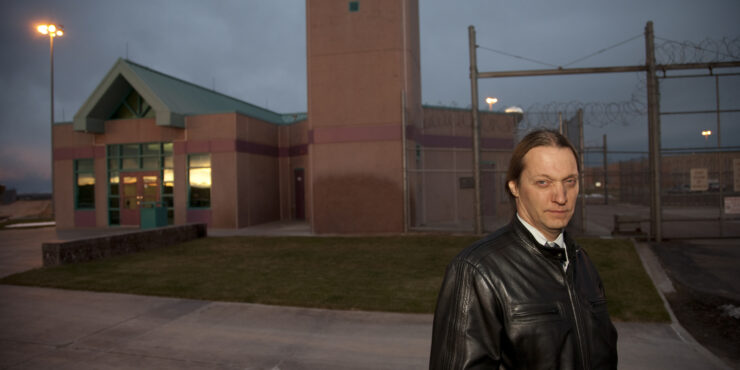
In her account, A Tree with My Name on It: Finding A Way Home (Bold Story Press, 2024), Vicki Hitchcock enters one of those periods in a life where you find yourself in transformation, whether you were looking for it or not. In the latter 90s, she moves to a ranch in the “Wet Mountains” in southern Colorado with her husband of 20+ years. As she adjusts to her spectacular and very rural world populated with new characters in the form of animals and neighbors, her marriage starts to unravel, and she finds herself examining the life she led that brought her there.
As it turns out, a previous iteration of Mindfulness Peace Project heard about her move, got a hold of her, and asked if she would go to the Federal Correctional Institution (FCI) in Florence, Colorado, to run an inmate dharma group. FCI Florence is an immense facility that contains within its miles of razor wire the full range of security level units, from minimum all the way up to the infamous ADX supermax, where the Timothy McVeighs and John Gottis get hermetically sealed in. I taught dharma groups myself in that complex, at several security levels.
After an initial misfire at the medium unit, where a prisoner senselessly exposes his genitals to her during the group (a rare but potential danger to female volunteers in men’s prisons), she starts another group at the minimum camp. Trying to get her initial group engaged at their first meeting, she introduces them to sitting meditation. “The tension in the room was thick…. [Read more…]


 It’s hard to get a purchase on the reality of nearly two million people incarcerated in the U.S. on any given day of the year. It’s an American reality, and if it’s got two million people directly in its grip, how many more people become affected when their brother or father or son (it’s mostly males), their friend or cousin or coworker gets hauled off. There’s a ripple effect on other people that’s got to far surpass two million.
It’s hard to get a purchase on the reality of nearly two million people incarcerated in the U.S. on any given day of the year. It’s an American reality, and if it’s got two million people directly in its grip, how many more people become affected when their brother or father or son (it’s mostly males), their friend or cousin or coworker gets hauled off. There’s a ripple effect on other people that’s got to far surpass two million. The Buddhist tradition gets regarded as pacifistic. It definitely emphasizes not creating harm–not resorting to aggression in speech or physical violence. But anyone who’s spent real time on the meditation seat knows that aggression often shadows thoughts in some form or another. Over the decades you can see what a refined game it is. Even pretty subtle thoughts can arise purely for the sake of dodging your direct experience and any raw feeling that goes with it. There’s a fundamental aggression in discursive thought habituated to rejecting your own naked experience, and that tendency goes deep.
The Buddhist tradition gets regarded as pacifistic. It definitely emphasizes not creating harm–not resorting to aggression in speech or physical violence. But anyone who’s spent real time on the meditation seat knows that aggression often shadows thoughts in some form or another. Over the decades you can see what a refined game it is. Even pretty subtle thoughts can arise purely for the sake of dodging your direct experience and any raw feeling that goes with it. There’s a fundamental aggression in discursive thought habituated to rejecting your own naked experience, and that tendency goes deep. I remember as a teenager plucking a book off the rack–-something you saw everywhere back in the 70s, almost as ubiquitous as fat James Michener novels. It was called The Prophet. I opened it randomly and felt struck in the face by what it said:
I remember as a teenager plucking a book off the rack–-something you saw everywhere back in the 70s, almost as ubiquitous as fat James Michener novels. It was called The Prophet. I opened it randomly and felt struck in the face by what it said:
